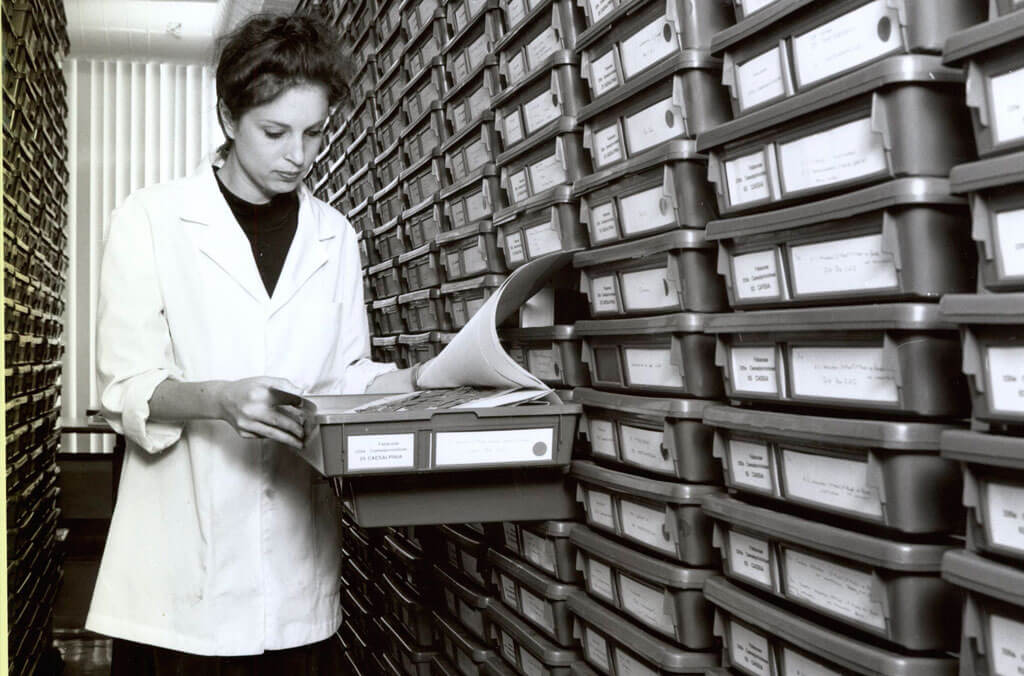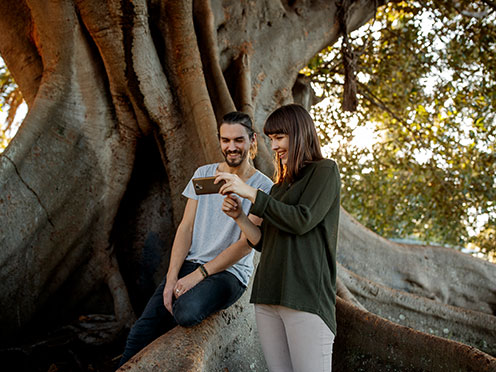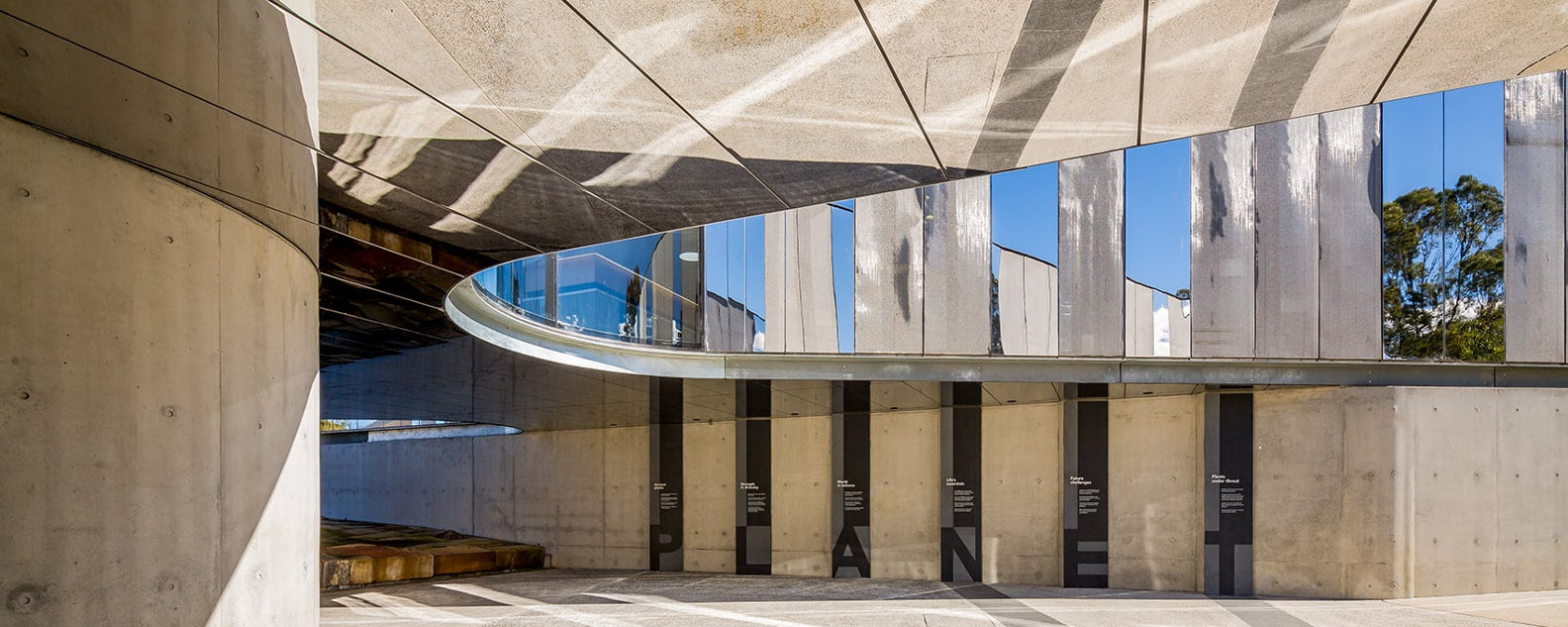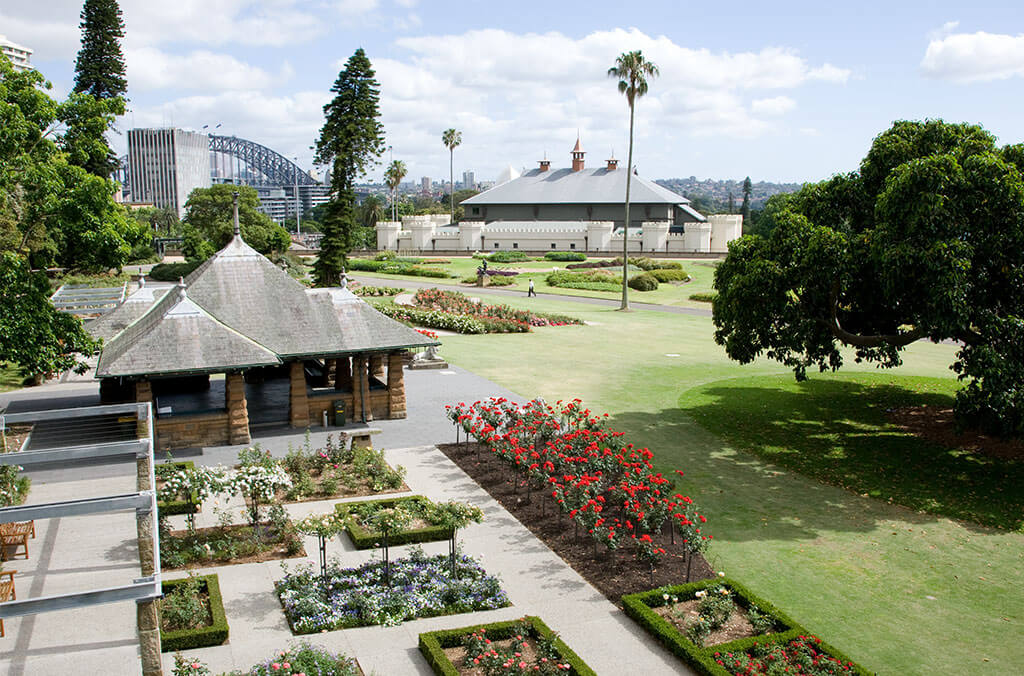Leadership and Governance
Chief Executive
- Simon Duffy, AM
Director Science, Education and Conservation
- Professor Brett Summerell, AM
Director Finance, Property & Corporate Services
- Gabrielle Collins
Director, Horticulture and Living Collections
- John Siemon
Director Marketing, Partnerships & Experiences
- Rachael Hammond
Director Asset Management, Planning & Projects
- George Salouros
Richard Nunn – Chair
- Appointed: 2 November 2023; Current Term Expiry: 1 November 2026
Debra Townsend
- Appointed: 28 November 2018; Current Term Expiry: 31 October 2026
Anna Guillan AM
- Appointed: 2 January 2024; Current Term Expiry: 1 January 2027
Professor Andy Marks
- Appointed: 2 January 2024; Current Term Expiry: 1 January 2027
Professor Rachael Gallagher
- Appointed: 13 February 2025; Current Term Expiry: 12 February 2028
Nancy Fox AM
- Appointed: 1 November 2025; Current Term Expiry: 31 October 2028
Jacquie Fegent-Mcgeachie
- Appointed: 1 January 2026; Current Term Expiry: 31 December 2028
Professor Rachael Gallagher – Chair (Trustee)
Professor Andy Marks (Trustee)
Jolyon Burnett
Dr Ian Cresswell
Professor Robert Henry
Clarence Slockee
Professor Brett Summerell
Dr Gillian Brown
Dr Susan E. Everingham
Jacquie Fegent-Mcgeachie – Chair
Anna Guillan AM
Nancy Fox AM
Professor David J. Mabberley AM DSc - appointed 19 June 2024
Timothy Entwisle - appointed 6 May 2025
The Royal Botanic Gardens and Domain Trust is a statutory body established under a New South Wales Act of Parliament: the Royal Botanic Gardens and Domain Trust Act 1980.
The Act defines the Trust's powers, authorities, duties and functions, as well as vesting certain land and other property in the Trust.
The Act determines the Trust to consist of 7 trustees, who are appointed by the Governor on the recommendation of the Minister. The Trust's Principal Objects under the Act are:
- to maintain and improve the Trust lands, the National Herbarium and the collections of living and preserved plant life owned by the Trust,
- to increase and disseminate knowledge with respect to the plant life of Australia, and of New South Wales in particular, and
- to encourage the use and enjoyment of the Trust lands by the public by promoting and increasing the educational, historical, cultural and recreational value of those lands.
When acting in pursuance of its objects, the Trust shall give particular emphasis to encouraging and advancing the study of systematic botany, and to plant conservation.
The Royal Botanic Gardens and Domain Trust Regulation 2020 is a statutory instrument made under the Authority of the Act.
The Regulation sets out the administrative detail that operates under the Act, including rules for activities on Trust Lands, including:
- Entry onto Trust lands,
- Use of vehicles,
- Commercial and public activities,
- Recreational activities,
- Offensive and dangerous conduct,
- Animals on Trust lands.
- Download the Royal Botanic Gardens and Domain Trust Annual Report 2024-25 (PDF ~ 8.51 MB)
- Download the Royal Botanic Gardens and Domain Trust Annual Report 2023-24 (PDF ~ 12.57 MB)
- Download the Royal Botanic Gardens and Domain Trust Annual Report 2022-23 (PDF ~ 12.1 MB)
- Download the Royal Botanic Gardens and Domain Trust Annual Report 2021-22 (PDF ~ 3.81 MB)
- Download the Royal Botanic Gardens and Domain Trust Annual Report 2020-21 (PDF ~ 7.38 MB)
- Download the Royal Botanic Gardens and Domain Trust Annual Report 2019-20 (PDF ~ 6.73 MB)
- Download the Royal Botanic Gardens and Domain Trust Annual Report 2018-19 (PDF ~ 6.38 MB)
- Download the Royal Botanic Gardens and Domain Trust Annual Report 2017-18 (PDF ~ 8.36 MB)
- Download the Royal Botanic Gardens and Domain Trust Annual Report 2016-17 (PDF ~ 16.76 MB)
- Download the Royal Botanic Gardens and Domain Trust Annual Report 2015-16 (PDF ~ 18.37 MB)
- Download the Royal Botanic Gardens and Domain Trust Annual Report 2014-15 (PDF ~ 10.24 MB)
- Download the Royal Botanic Gardens and Domain Trust Annual Report 2013-14 (PDF ~ 5.92 MB)
- Download the Royal Botanic Gardens and Domain Trust Annual Report 2012-13 (PDF ~ 7.74 MB)
Please note: in order to comply with current New South Wales Government requirements, we only print a limited number of hard copy Annual Reports each year for accessibility and research purposes. If you would like a hard copy, you can order this by:
- Phoning on (02) 9231 8111
- Emailing at [email protected].
Policies and Plans
Please see our customer charter for information on how we handle feedback and what you can expect when interacting with us.
An easement allows another person or entity to use lands owned by another person or entity without any right of ownership of possession .The most common forms of easements are rights of way and for services, such as water, electricity or sewerage. In the case of the Trust lands, the Trust may grant easements across Trust lands to:
- Constructing pipelines or laying cables
- Providing access to dwellings adjacent to Trust lands
- Supporting the Trust to reach its objectives.
- Easements criteria
Requests for easements must satisfy one or more of the following criteria:
- Supports the Government supply of services and utilities.
- Supports the supply of service to owners of neighbouring lands.
- Provides access to owners of neighbouring lands.
- Minimises the impact on the physical structure and visual amenity of Trust lands.
- Complies with legislative safety and environmental requirements.
- Demonstrates and aligns with the core activities and objectives of the Trust.
The Royal Botanic Gardens and Domain Trust can enter formal leases, both short-term and long-term, for the supply and delivery of goods and services, such as turf supply, waste removal, and food and beverage services for specific events or locations.
Requests for goods and services delivered and managed by experienced and specialised private operators, contractors or third parties are advertised and sourced through the NSW Government Tender processes.
At the end of any lease term(s), the Trust reviews its ongoing business and operational requirements. Then, as appropriate, it either prepares new requests to return to market (using the NSW Government Tender processes) or considers alternative procurement options.
The Trust may grant a licence for the non-exclusive use of land to:
- Maintain, re-lay or repair existing pipelines or cables
- Repair services that traverse
- Trust lands through to neighbouring lands owned by other organisations
- Temporary construction access
- Temporary venue hires or other commercial purposes
- Repair or construction works criteria
Requests for licences associated with repair works or construction works should be made in writing to the Trust. They must satisfy one or more of the following criteria:
- Support the Government supply of services and utilities
- Support the supply of service to owners of neighbouring lands
- The proposal will leave no permanent impact on the physical structures or visual amenities of the Trust lands
- The proposal must comply with legislative safety and environmental requirements.
- Temporary venue hires criteria
Requests for licences associated with temporary venue hire or other commercial purposes must be made in writing to the Trust. Venue hire requests must satisfy one or more of the following criteria:
- Enhance the educational, historical, cultural or recreational value of Trust lands
- Integrate Trust activities with the wider social or cultural life of NSW
- Comply with legislative safety and environmental requirements
- Must not leave any permanent impact on the physical structure or visual amenity of the Trust lands
- Demonstrate and align with the core activities and objectives of the Trust
- Must meet an appropriate standard of service delivery
- Should provide a commercial return to the Trust if applicable.
Tenders are advertised through NSW Government Tenders.
Access to Information
The Government Information (Public Access) Act 2009 (GIPA Act) gives you the right to access government information you ask for, unless there is an overriding public interest against release.
Government information is any record held by an agency, a private sector entity or the State Records Authority to which the agency has an immediate right of access, or a record that is in the possession or under the control of a person in his or her capacity as an officer of the agency. A record means any document or other source of information compiled, recorded or stored in written form or by electronic process, or in any other manner or by any other means.
Information is made available in four ways:
- Mandatory disclosure - open access information
- Proactive release
- Informal release
- Formal release
The following open access information must be disclosed free of charge:
- Agency Information Guide
- Policy documents
- Information formally released under the GIPA Act (disclosure log of formal access applications - these are maintained by the Department of Planning and Environment)
- Government contracts register for contracts valued at $150,000 or more
- Information about the agency contained in any document tabled in Parliament by, or on behalf of, the agency - other than any document tabled by order of either House of Parliament
- The agency's record of open access information (if any) that it does not make publicly available on the basis of an overriding public interest against disclosure
- A list of major assets (other than land holdings) - included in Annual Reports
- The total number and value of properties disposed of during the previous financial year - to be included in Annual Reports from 2009-2010
- Guarantee of Service
- Code of Ethics and Conduct
We will proactively release as much information as possible; however, sometimes this may not be possible, for instance if the information concerns another party’s affairs.
You can ask what further information we will make available, in addition to the information already publicly accessible.
Contact us if you require further details.
You can ask for specific information (including your personal information) on an informal basis. Contact us if you require further details.
We will give you a decision as quickly as possible. If we can't provide a final decision within 20 working days, we will let you know when you can expect one.
There is no right of review if you are not happy with an informal decision. If you make a formal application for the information, you will then have review rights.
Applying formally for information using an access application is the last resort.
However, there may be public interest reasons why the information may not be released informally, or a third party will need to be consulted in relation to the release of their business or personal information, in which case a formal application should be lodged.
Formal GIPA access applications for the Royal Botanic Gardens and Domain Trust can be lodged through the Department of Planning and Environment.
For information about the Public Interest Disclosures Act go to the Department of Planning, Housing and Infrastructure's Information, access, governance and feedback page.
For more information on accessing information under the GIPA Act, including personal information, visit the Department of Planning and Environment or the Office of the Information Commissioner.



